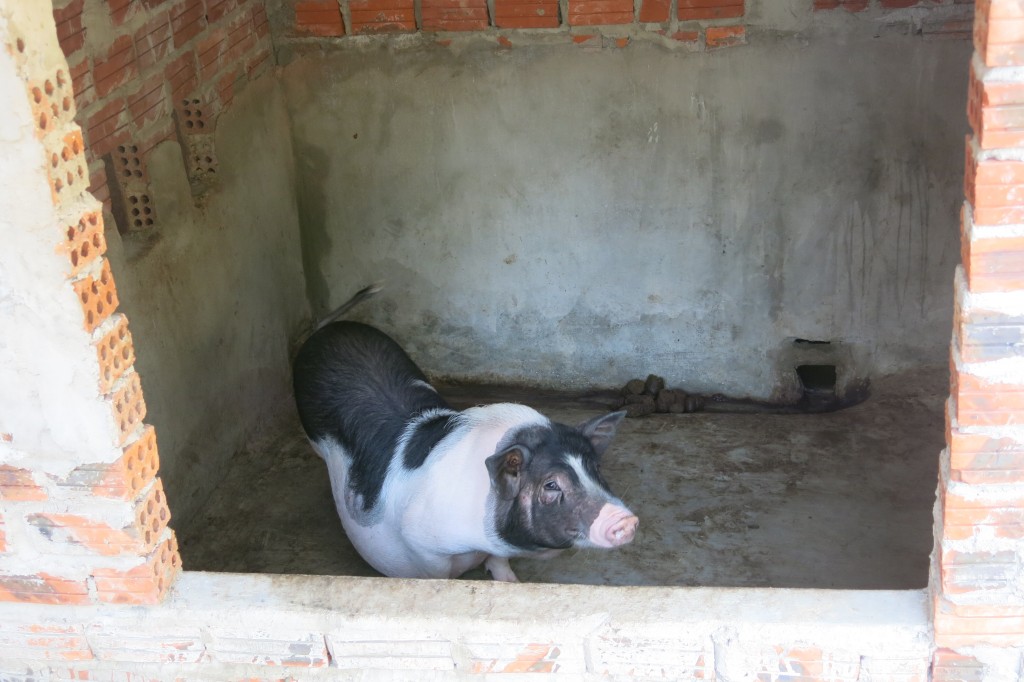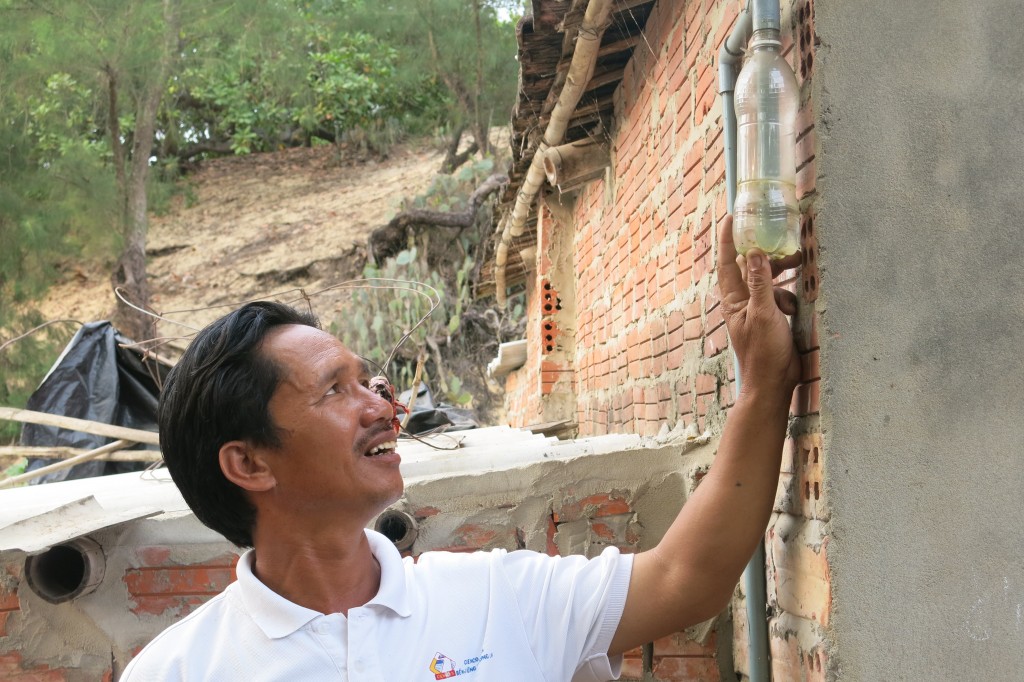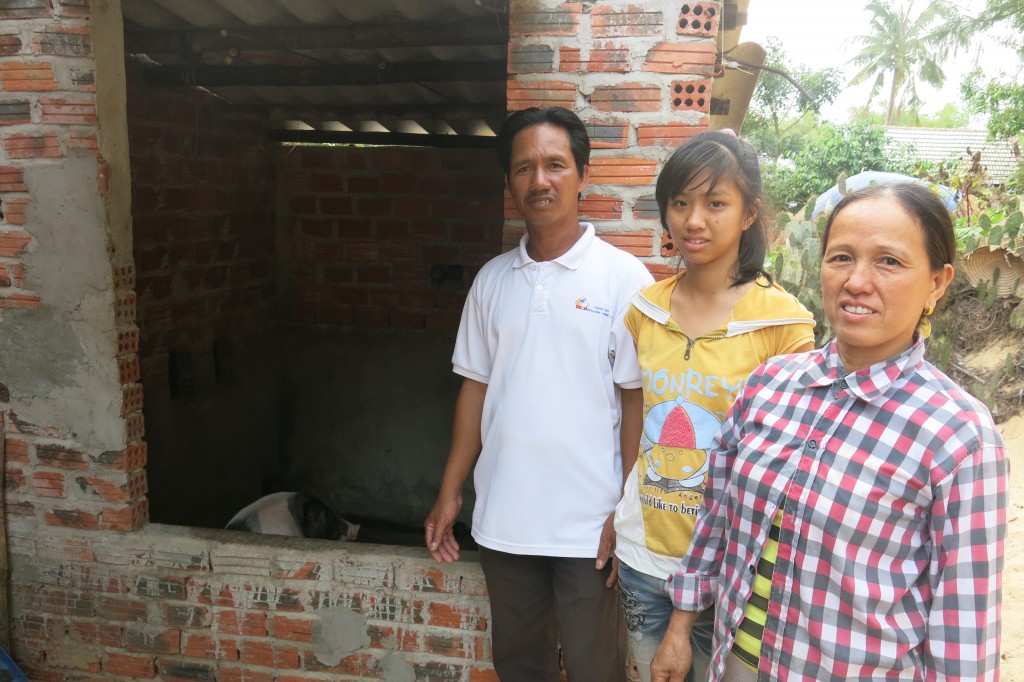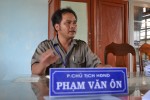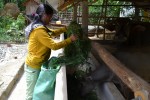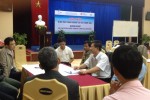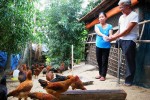Pig manure and bio-gas: Strengthening existing livelihood models
The primary form of agriculture in Vietnam’s Quang Nam province is rice, which comprises 75 percent of the farming area. Peanuts, maize and commercial crops are generally grown on the remaining land. However, studies suggest that climate change could lower agricultural productivity as much as 15 percent in Vietnam.
As many locals in the region rely on their farming for food and income, it has been crucial for Save the Children’s CBA project to support the implementation of geographically suitable alternative livelihood models and increase villagers’ knowledge of locally relevant adaptive farming and animal rearing techniques. This approach lays the foundation for sustainable adaptation that builds resilience in the community and opens up opportunities for the diversification of livelihood methods, which may reduce exposure to risk and market volatility.
Nguyen Xuan Thong lives in Thang Binh district of Quang Nam with his wife and five children. His youngest is 11 and attending school. Another of his children has a disability and must stay at home. To support his family Thong has been farming rice and raising pigs with limited success. He finds it difficult to keep his pigs healthy and gaining weight in light of the severity of the weather in his province.
When Thong’s son participated in the project’s climate change resilience activities at school he passed on the information he was learning to his family. The knowledge and understanding Thong gained about how climate change can contribute to certain diseases and the factors that can affect the health of his family and community compelled him to register for the new livelihood models project running in his community.
In addition to receiving one sow and 50 percent of the costs to build a pig pen, Thong and his wife also attended training sessions with staff from the Agriculture Extension Centre and other villagers. In these sessions they learned techniques to ensure their pigs could thrive despite the changing weather. These included building the pig pen with sloping floors and north- or south-facing to avoid cross breezes; the separation of the piglets from their mother; adding a light to warm piglets; cutting down sharp teeth; and the neutering of male pigs when they are five days old, which allows them to grow faster. This training has all contributed to the increased wellbeing of Thong’s livestock, so that they are healthier, reach maturation and can be sold for meat at a good price.
Thong learned the techniques and building requirements that enabled him to use his pig waste to produce biogas – a sustainable energy source – through the installation of a biogas digester. Each day his pigs produce five to six hours’ worth of gas, which has saved the family time and money as well as saving countless trees because Thong no longer needs to go to the forest and cut down trees for firewood.
As a result of the family’s achievements, three other families have replicated the model utilising their own means. To ensure that his neighbours have accurately set-up their new waste treatment centre and pig pens, Thong regularly visits to check out their work, communicate his expertise and share experiences and lessons learned.
When asked whether he would prefer to be given additional technical trainings or another sow, Thong explained that he would favour the skill-set training as he finds this to be far more useful to his family both now and into the future.
Through training local villagers with the skills required to adapt to climate change in a locally-relevant way, the members of this community are being introduced to skill development, livelihood diversification and strengthening of existing livelihoods ensuring they are more sustainable and cost effective, and that they can increase income, inspire confidence and encourage community ownership to achieve resilience.
Save the Children
Some pictures:
